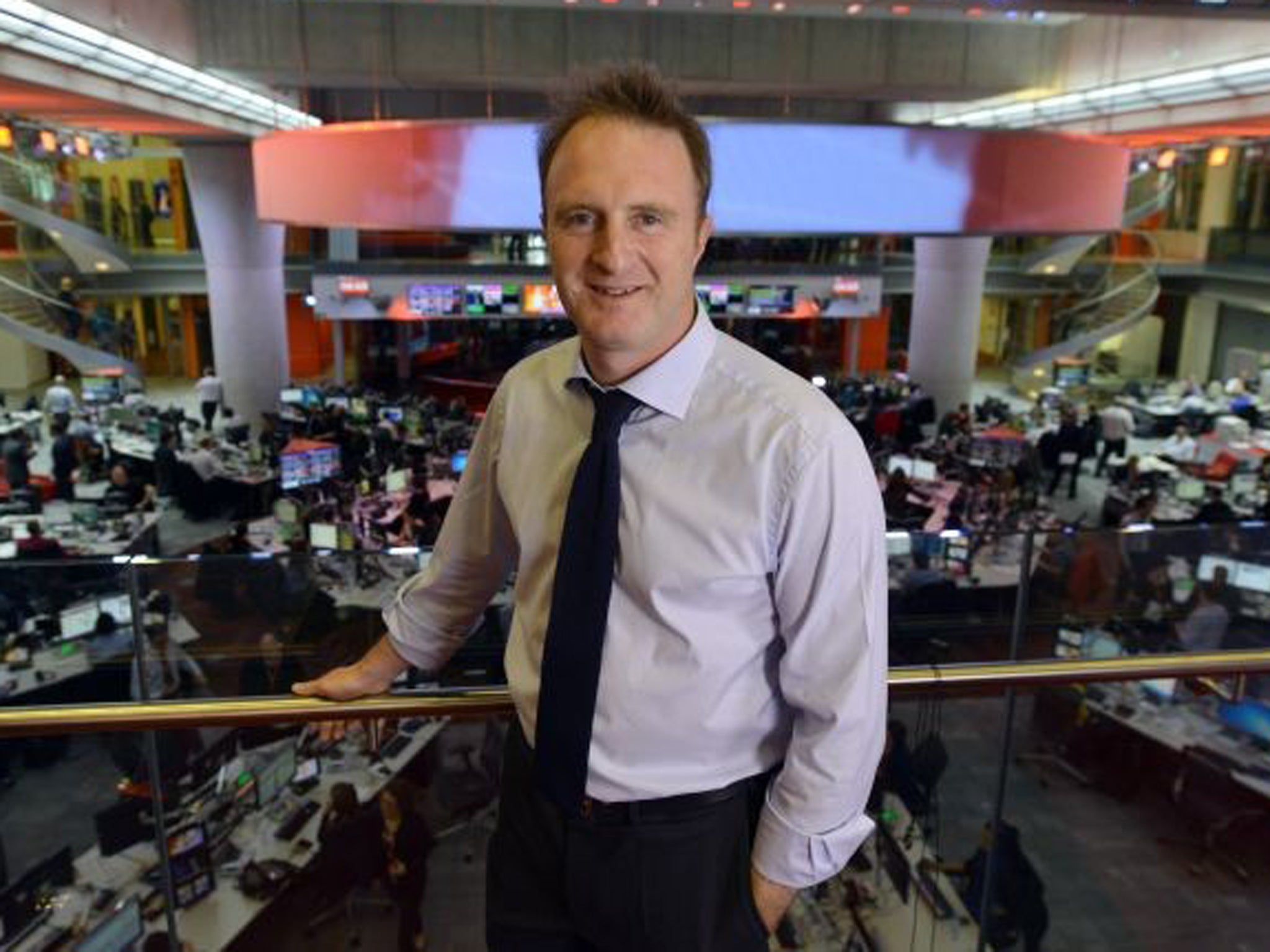New BBC head of news James Harding has long battle ahead for more women broadcasters, warn female ex-governors
Former Times editor told journalists he was 'determined' to bring greater gender parity to on-air presenting and reporting team

Your support helps us to tell the story
From reproductive rights to climate change to Big Tech, The Independent is on the ground when the story is developing. Whether it's investigating the financials of Elon Musk's pro-Trump PAC or producing our latest documentary, 'The A Word', which shines a light on the American women fighting for reproductive rights, we know how important it is to parse out the facts from the messaging.
At such a critical moment in US history, we need reporters on the ground. Your donation allows us to keep sending journalists to speak to both sides of the story.
The Independent is trusted by Americans across the entire political spectrum. And unlike many other quality news outlets, we choose not to lock Americans out of our reporting and analysis with paywalls. We believe quality journalism should be available to everyone, paid for by those who can afford it.
Your support makes all the difference.Former female BBC governors have warned the station’s new head of news he faces a long battle to fulfil his pledge of having more female broadcasters on screen.
James Harding promised to oversee a rise in women across the BBC News output in one of his first addresses to staff this month. The ex-Times editor told journalists he was “determined” to bring greater gender parity to the on-air presenting and reporting team.
Deborah Bull, governor between 2003 and 2006, welcomed the move but said it would take a long time to implement. “A cultural change needs to take place and that won't happen overnight,” she told The Independent. “I would advise against any knee-jerk reactions. He needs to plan a complete strategy to reach his target and stick to it.
“One or two high-profile appointments for example would kick-start things but it would be a long-term process. Young women shouldn’t be listening to the radio for example and waiting for Women’s Hour to come on because they know that will definitely be presented by a woman, discussing issues women think important.”
Research by shadow culture secretary Harriet Harman revealed last month that of the 145 presenters over the age of 50 on UK television, just 18 per cent are women. At the BBC, 20 per cent of its 127 older presenters are female. Among the BBC’s 11 top editors, including political editor Nick Robinson and business editor Robert Peston, the economics editor Stephanie Flanders is the only woman in the group.
Mr Harding is in the middle of a four month transitional period for the £340,000 a year role. Answering questions from BBC Radio 4 presenter Justin Webb at the organisation’s annual BBC News Festival event, seeking ways to improve its output, he was asked if he could improve the representation of women on BBC news programmes. Mr Harding replied: “I think that as an outsider there is clearly an issue about the number of female broadcasters - the number of broadcasters on air - that is one thing you do notice, and we’re going to have to do something determined about that. As a viewer and listener you're aware of it. And you think to yourself ‘hang on, the BBC can do better than that.’ And we can.”
Asked if it was a priority issue, he said: “I’m saying it's something important to do”.
Labour MP Barry Sheerman responded: “The highly paid James Harding wants more women reading BBC news? No we need more talented women heading top programmes.”
Ms Bull, now director of cultural partnerships at King’s College London, believed there was “a lack of connection” between the governors and presenters at the BBC during her time on the board. She added: “You also can’t ignore the link (for women) between experience and being able to be the face of news programmes. The culture has tended towards picking younger women but that is an age-old issue.
“The lack of female editors is a problem, but it’s not just a BBC issue - look at the G20 and the lack of women leaders for example. The BBC has often reflected society and this is an example of that. Ultimately, it’s a good move for three reasons: equality, the different perspective women can bring to big political and economic debates, and representation.”
Angela Sarkis, who has just been appointed the UK’s first ‘victims’ commissioner’ and has launched an inquiry into victims’ experience of the criminal justice system, was governor from 2002-06. She said the lack of female presenters was an issue she regularly raised during her time at the BBC.
“You will find sexism everywhere and the BBC is no different. This issue was raised a lot when I was a governor. In fact, I’ve raised female representation at every organisation I've worked at. But it’s not just women at the BBC that needs to be looked at - you could say the same about ethnic balance and there is no one size fits all approach.
“It’s a challenge for Harding but good news that he wants to do something about it. I think we’re moving in the right direction and I hope he succeeds.”
Join our commenting forum
Join thought-provoking conversations, follow other Independent readers and see their replies
Comments